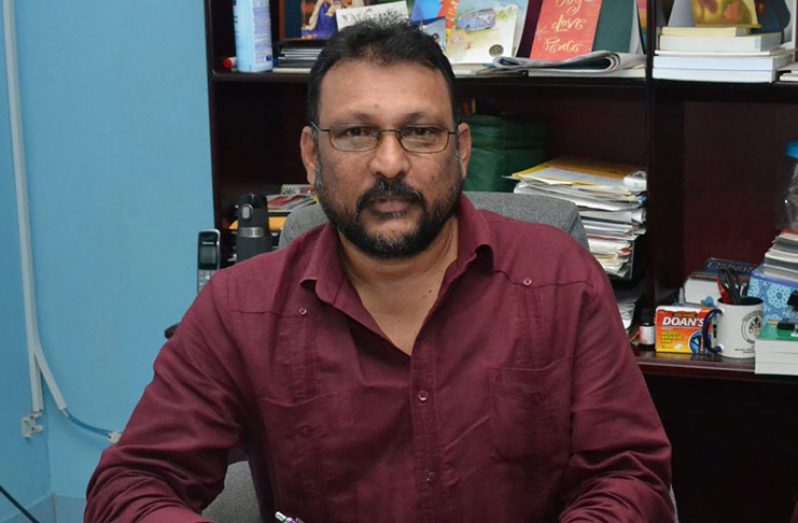…incidence down to 69 per every 100,000 persons in 2019, health official says
By Lisa Hamilton
TUBERCULOSIS (TB) is the world’s deadliest infectious killer as daily, nearly 4,500 persons lose their lives to the disease, and some 30,000 more fall ill because of it.
Today, the world commemorates World Tuberculosis Day to raise public awareness about its devastating health, social and economic consequences and to increase efforts to end the global epidemic. However, the observance comes at a challenging time when a new pandemic, the coronavirus (COVID-19), has captured the attention of many health workers around the world.
TB is an airborne bacterial infection which can be acquired by inhaling contaminated air droplets released into the atmosphere when someone nearby who has active tuberculosis either coughs or sneezes.
Persons can also get the disease by ingesting unpasteurised milk products contaminated with mycobacterium bovis, also known as Bovine tuberculosis. The most common form of the infection is Pulmonary TB, which affects the lungs, but, in some cases the bacteria can also attack the lymphatic system, central nervous system, urogenital area, joints and bones.
Here in Guyana, Project Coordinator of the National Tuberculosis Programme (NTP), Dr. Jeetendra Mohanlall was happy to report on Monday that the number of cases in the country are on the decline.
“TB is coming down; the incidence is on the decline,” he told the newspaper on Monday.
Guyana’s TB cases have shown stability over the last few years, as the TB incidence for 2019 was 69 per 100,000 population.
This decline was particularly noticeable in the country’s prison population, whereby only 7 new TB cases were detected in all of its penal institutions in 2019, said to be the lowest in 20 years. It came about as a result of the strategy of ensuring that inmates affected with TB are isolated and treated using the DOT strategy.
Dr. Mohanlall said that he is especially proud that Guyana’s TB control programme has been recognised by the World Health Organisation (WHO).
TB COUPLED WITH COVID-19
Meanwhile, the Chest Clinic at the Georgetown Public Hospital Cooperation (GPHC) must also deal with the blurred lines between COVID-19 and TB. The Clinic sees some 60 per cent of all TB cases in the country.
Persons with active TB have symptoms such as excessive coughing (sometimes with blood), chest pain, general weakness, lack of appetite, weight loss, swollen lymph glands, fever, chills, and night sweats. These symptoms can be misdiagnosed for bronchitis or pneumonia.
Meanwhile, in worst cases of COVID-19, persons can experience respiratory symptoms such as a dry cough and shortness of breath that often turn into pneumonia.
Dr. Mohanlall explained that the difference between the two diseases could be misunderstood by persons, stating: “TB is a progressive cough; you would cough and it will get worse, and you will get fever, night sweats, weight loss and these things. It’s progressive and it’s productive. With COVID-19, however, it’s a non-productive cough. You’ll have started with the fever an sore throat and then you’ll have a dry cough.”
Nonetheless, he noted that a decision has been made to down-size exposure at the Chest Clinic, and staff have been reminded to take all health-related precautionary measures when handling patients.
Added to this, TB patients have been provided with two weeks worth of treatment to reduce the need for them to visit the clinic, while additional weeks of treatment could be provided should the country head into quarantine.
The medical staff are visiting TB patients directly to reduce their need to visit and patients concerned about whether they may have the virus are encouraged to call rather than visit, identical to the advice given to all citizens.
DO YOUR PART
By the end of 2020, the goal is to decrease the incidence of TB to below 60 per 100,000 population.
The Public Health Ministry is constantly pursuing means to enhance socioeconomic support to less fortunate TB patients and to deal with challenges such as lack of food and abode, financial difficulties, low education level, unemployment and lack of social supports systems.
One of the country’s greatest challenges to fighting TB is the TB/HIV co-infection rate, which was 16 per cent in 2018. HIV has been identified as one of the biggest concerns and underlying causes of the increase in both TB morbidity and mortality.
The Ministry of Public Health, through the NTP, continues to urge persons to become more involved in the fight against TB by educating themselves and raising awareness about the disease.
TB services are present in all regions in the country through the Directly Observed Treatment (DOT) programme of the NTP.
There are 19 TB sites across the country and DOT coverage of just over 90 per cent.
“There is still need for improvement, especially in the hinterland regions where more coordination of efforts and ownership by all stakeholders is required,” then Minister within the Ministry of Public Health, Dr. Karen Cummings acknowledged last year.
Meanwhile, Dr. Mohanlall said: “TB is not like the COVID-19; you can diagnose TB. We have sufficient tests; the treatment is there, and it’s curable. The other thing is that it is also preventable. Once we test that you’re positive, we put you under preventative therapy, and that is very good.”




.png)









